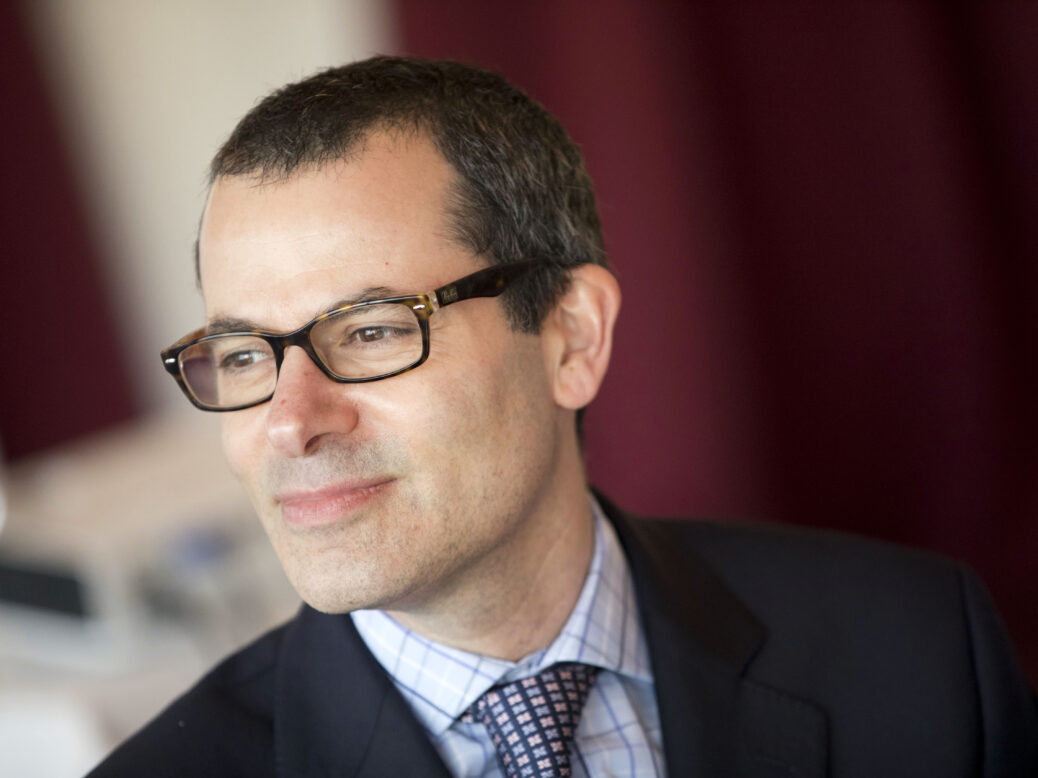
Adam Lent is the chief executive of the New Local, an independent think tank and network of more than 70 councils and local authorities. New Local works to engage the public in the design and operation of sustainable, community-led public services. He holds a PhD from the University of Sheffield and his previous roles include head of economics and social affairs at the Trades Union Congress (TUC) and director of the Royal Society of Arts (RSA) Action and Research Centre.
How do you start your working day?
Feed the cats, switch on the computer and lament my diary.
What has been your career high?
Co-authoring The Community Paradigm with Jessica Studdert, deputy chief executive at New Local, which sets out the case for a fundamental shift in how public services work. This is the one thing I’ve written that feels like it has helped to inspire genuine practical change.
What has been the most challenging moment of your career?
Without question, balancing a full-time job and a lengthy commute with being a dad to little kids. I’m pleased to see that more people are demanding greater flexibility at work now, but the government’s wooden-headed attitude to home-working is a sign of how far there is to go on convincing some people that nothing is more important than family life.
If you could give your younger self career advice, what would it be?
Find an organisation to work for that knows clearly what it’s trying to achieve and is full of nice people – and then stay there. There is nothing better for your well-being than being surrounded by friendly, supportive colleagues on a shared mission.
Which political figure inspires you?
Marek Edelman and Alina Margolis-Edelman. They were part of the leadership of the Warsaw Ghetto uprising against the Nazis, then leading dissidents in Communist Poland before helping establish democracy in the Nineties. And they raised a family, invented life-saving cardiology and founded an international medical charity. Some people just leave you in awe of their courage, conviction and energy.
What UK policy or fund is the government getting right?
The establishment of Integrated Care Systems at the heart of the NHS is a step in the right direction. But it’s only one step – there is a heck of a lot more to do to address the huge problems confronting health and social care.
And what policy should the UK government ditch?
So many to choose from but I’ll plump for persistent underfunding of councils. You can’t spend 12 years ripping resources away from the organisations that support neglected and abused children, disabled people and older people and still claim to have a moral compass.
What upcoming UK policy or law are you most looking forward to?
The energy price cap was obviously a good thing until it was gutted, but we’ve clearly got an administration heading in completely the wrong direction. We live in an era of deep crisis across the world – we need a government investing in public services and communities to build resilience. Instead, we’ve had libertarian fantasies of hyper-growth followed by Austerity 2.0. It feels entirely out-of-touch with a world roiled by ecological collapse, economic volatility and international conflict.
What piece of international government policy could the UK learn from?
The most radical and interesting stuff is happening on the “margins” in places like Chiapas and Cherán in Mexico and Rojava in the autonomous Kurdish region of Syria. People there are trying to establish a politics based on popular participation and consensual deliberation alongside an economy that genuinely respects people and the planet. Their efforts are not perfect, but these are the only places that fully understand how much things will need to change as the environmental and associated crises spiral out of control in the coming decades.
If you could pass one law this year, what would it be?
A Community Power Act. It would devolve major powers and resources down to local level, and in return, councils, the NHS and others would shift to an approach where communities rather than institutions get to shape the big decisions and services that affect the places people live.
[See also: Inside Rojava, the democratic province trapped between Turkish forces and Isis]




